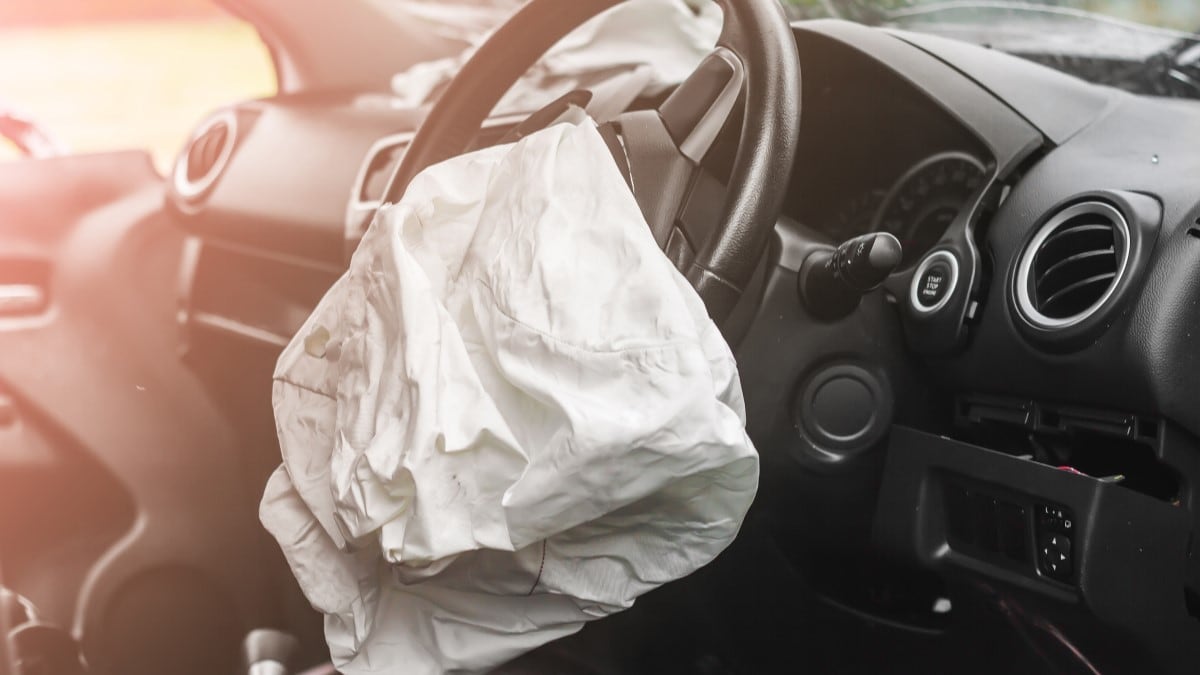BMW has issued a recall affecting just 486 cars, but it raises questions about millions more. It echoes the largest recall in automotive history, suggesting it may not have been extensive enough, and more drivers may be in danger than previously believed. The government’s primary automotive safety agency is investigating.
Just 486 BMW SUVs For Now
We’ll get the recall itself out of the way first, in case you’re driving an affected vehicle.
BMW has recalled 486 vehicles — a mix of X3, X4, and X5 SUVs from the 2014 model year — to replace their driver’s front airbags.
The move comes after an accident gravely injured a 2014 X3 driver.
Airbags inflate quickly in an accident thanks to airbag inflators — tiny metal capsules full of chemicals. In an accident, those chemicals combine, creating a rapidly expanding gas. In a properly designed and functioning inflator, the gas squirts out of a small nozzle to inflate the bag in a fraction of a second.
But in the BMWs in the recall, the gas exploded the metal capsule instead. Surgeons, the Associated Press reports, removed a metal fragment from the driver’s lung. The driver “also had chest and shoulder cuts that appeared to be caused by shrapnel.”
After the accident report, BMW told the National Highway Traffic Safety Administration (NHTSA) it “decided to conduct a voluntary safety recall for vehicles containing inflators from the production lot in which the field vehicle was equipped.”
Dealers will replace the entire driver’s front airbag assembly in all affected cars. Recalls are always free.
Remember the Takata Airbag Recall?
If this all sounds familiar, it should. The largest recall in automotive history involved exploding airbag inflators.
Takata Corp., now defunct, once built airbag inflators used by nearly every automaker on several continents. Many of those inflators were later proven dangerous.
NHTSA reports that “27 people in the United States have been killed” in similar incidents. “In addition, at least 400 people in the United States have allegedly been injured by exploding Takata airbag inflators.”
For the better part of a decade now, at least 34 automakers worldwide have issued recalls covering tens of millions of cars, all in an attempt to get dangerous Takata-built airbag inflators off the road.
NHTSA believes that as of January 2021, of the 67 million cars on American roads that carried the defective inflators, about 50 million have been repaired or removed from use.
That means as many as 17 million cars on American roads have a potentially deadly defect eligible for free repair.
These Are Also Takata Airbags
Until now, the recall campaigns have all involved airbag inflators that use a particular chemical formula to inflate the cushion. The world’s auto safety agencies have spent two decades trying to get every phase-stabilized ammonium nitrate (PSAN) inflator Takata built off the roads.
But Takata built airbags with other technologies.
The 486 cars BMW recalled used inflators built by Takata with a different formula involving a desiccant — a chemical used to keep other chemicals dry — not found in the PSAN inflators.
Now, safety agencies are asking whether those Takata airbag inflators are unsafe, too.
A Second Takata Recall Is Possible
NHTSA has already investigated Takata inflators with a drying agent in them. It declined to issue a recall at the time. But the move is still possible, and BMW’s decision could create new pressure.
“The agency decided in May of 2020 not to recall the inflators with the desiccant,” the AP reports, “but said it would monitor them.”
The agency’s records show “Honda, Stellantis, General Motors, Ford, Nissan, Tesla, BMW, Toyota, Jaguar Land Rover, Daimler Vans, Mitsubishi, Subaru, Mercedes-Benz, Ferrari, McLaren, Porsche, Mazda, Karma, Fisker, Spartan Fire vehicles” could all carry Takata airbag inflators with a drying agent in them.
Takata Isn’t Alone
Meanwhile, NHTSA is busy tangling with another airbag inflator manufacturer over a potentially similar problem. The agency spent much of 2023 trying to force a recall of 52 million inflators built by a Tennessee-based company with no connection to Takata.
What You Can Do Now
For now, there is no way to force an automaker to replace a part that hasn’t been subject to a recall. But you can always check whether your car needs any free repairs at our recall center.
You should take a moment and do it today. Automakers consistently tell us that reaching customers about recalls is one of their most frustrating challenges, and millions of vehicles are driving on American roads in need of free repairs.








